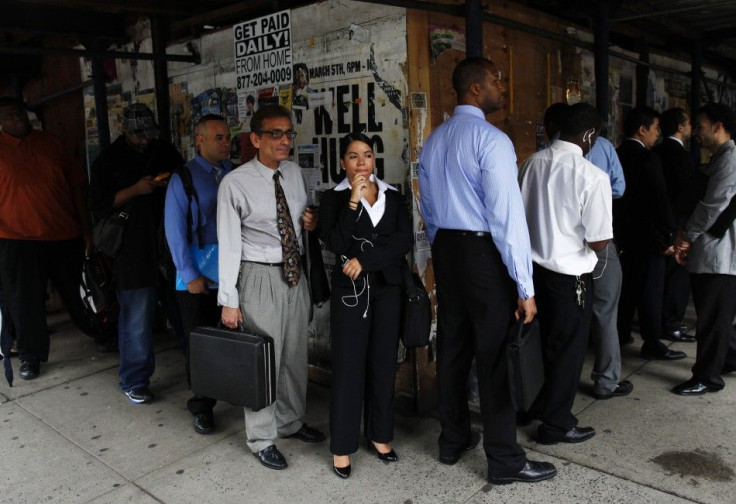Stocks Plunging in Wake of Horrific August Jobs Report

U.S. stocks are plunging following a disastrous August jobs report that suggests the economy is at an increasing risk of slipping into another recession.
The Dow Jones Industrial Average fell 245 points soon after trading began, and both the S&P 500-stock index and the Nasdaq are down. In midday trading in European indices, London's FTSE fell 2.9 percent, Germany's DAX fell 3.9 percent and in France the CAC-40 fell 3.4 percent.
The U.S. Labor Department said the nation didn't add any jobs in August and the overall unemployment rate remained frozen at 9.1 percent. Even worse, jobs data from July and June were revised downward to show that 58,000 fewer positions were created during those months.
We expected a weak report, and what we got was even weaker, Patrick O'Keefe, director of economic research at J.H. Cohn, told CNN.
“Even allowing for the disruption of the strike by 45,000 Verizon workers last month, the stagnation in U.S. payroll employment is an ominous sign,” said Paul Ashworth, chief U.S. economist at Capital Economics.
“The monthly gain in payrolls has now been below 100,000 for four consecutive months. The broad message is that even if the U.S. economy doesn't start to contract again, any expansion is going to be very, very modest and fall well short of what would be needed to drive the still elevated unemployment rate lower.”
Ashworth noted manufacturing employment shrank by 3,000; construction fell by 5,000 and retail contracted by 8,000.
“The 48,000 decline in information sector employment reflects the strike by Verizon workers who weren't counted as employed because they weren't actually paid during the survey period,” he said. “Those employees returned to work in late August and will be added back to September's payrolls.”
Other worrying signals in the jobs report: average weekly hours worked slipped to 34.2, from 34.3, and average hourly earnings declined by 0.1 percent from July.
Temporary employment continued to grow as employers postpone adding permanent workers in an uncertain economy.
Ashworth indicated that temporary employment increased by 5,000 last month.
© Copyright IBTimes 2025. All rights reserved.





















